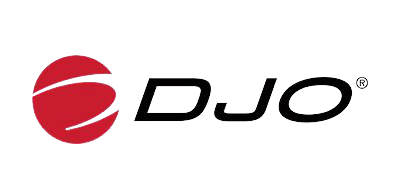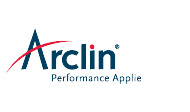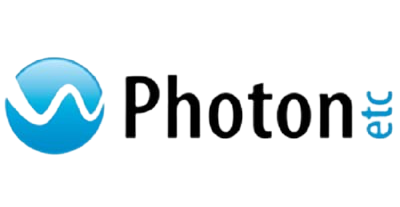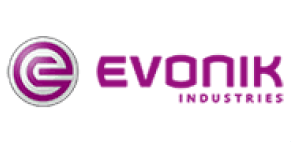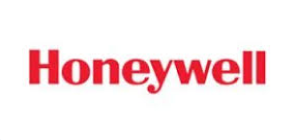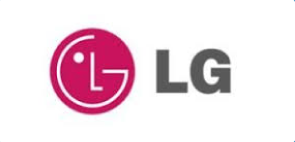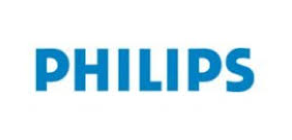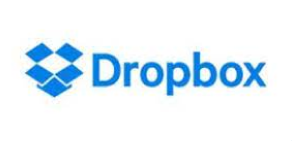Eternity Insights has published a new study on Global Wireless Brain Sensor Market focusing on key segments as by Type (Product(Electroencephalography (EEG) devices, Sleep Monitoring Devices, Magnetoencephalography (MEG) devices, Transcranial Doppler (TCD) devices, and Intracranial Pressure (ICP) monitors)), by Application (Dementia, Epilepsy, Parkinson's disease, Traumatic Brain Injury (TBI)), and by region. This deep dive re-search report highlights the market and competitive intelligence across the key segments of the mar-ket. The report also considers the impact of COVID-19 on the global Wireless Brain Sensor Market.
The report considers 2018-2020 as historic period, 2021 as base year, and 2022-2028 as forecast period. The report includes quantitative analysis of the market supported by the market drivers, challenges, and trends to accurately map the market scenario and competition. Moreover, key insights related to market having direct impact on the market will also be covered.
Wireless Brain Sensor Market report is based on robust research methodology designed using blend of research ap-proaches developed using secondary/desk research and validated through the primary research and expert insights. Eternity Insights also uses paid data bases such as FACIVA, Hoovers, and other bench-marking and forecasting tools to provide accurate statistical analysis of supply and demand trends.

To learn more about this report

To learn more about this report
Geographically, the market is categorized in to five regions as North America, Europe, Asia Pacific, Latin America, and the Middle East and Africa. North America region dominates the global Wireless Brain Sensor market in terms of demand generation. The Wireless Brain Sensor market in Asia Pacific region is expected to grow at significantly high growth rate. The regional market is further sub-segmented and analyzed at granular level across key countries. The report will include market size and forecast for Wireless Brain Sensor market for below listed coun-tries across each region.
North America (U.S. and Canada), Europe (Germany, France, Italy, UK, Spain, and Rest of Europe), Asia Pacific (China, India, Japan, Australia, and Rest of Asia Pacific region); Latin America (Brazil, Mexico, and rest of the Latin America); Middle East and Africa (GCC, South Africa, and Rest of the Middle East and Africa).

To learn more about this report
The global Wireless Brain Sensor market analysis report covers detailed analysis of competitive scenario across globe. The report includes profiles of leading players covering below details
| Report Attributes | Details |
| The market size value in 2021 | USD XX.XX Million |
| CAGR (2021 - 2028) | XX.XX % |
| The Revenue forecast in 2028 | USD XX.XX Million |
| Base year for estimation | 2021 |
| Historical data | 2018-2019 |
| Forecast period | 2022-2028 |
| Quantitative units |
|
| Report coverage | Revenue forecast, company ranking, competitive landscape, growth factors, and trends |
| Segments covered | By Type Outlook, Application Outlook, Regional Outlook |
| By Type Outlook | Product(Electroencephalography (EEG) devices, Sleep Monitoring Devices, Magnetoencephalography (MEG) devices, Transcranial Doppler (TCD) devices, and Intracranial Pressure (ICP) monitors) |
| By Application Outlook | Dementia, Epilepsy, Parkinson's disease, Traumatic Brain Injury (TBI) |
| Regional scope | North America, Europe, Asia Pacific, Latin America, Middle East & Africa |
| Country scope | U.S., Canada, U.K., Germany, France, BENELUX, China, India, Japan, South Korea, Brazil, Saudi Arabia, UAE, Turkey |
| Key companies profiled | EMOTIV Inc., Advanced Brain Monitoring, Inc., InteraXon Inc. (Muse), Neurosky Inc., Neuroelectrics Corporation, Evolent Health Inc., Neuronetrix Solutions, Hangzhou Zhongheng Electric Co. Ltd., Deayea Technology Co. Ltd., NeuroTherapeutics Pharma Inc. |
| Customization Available | Yes, the report can be tailored to meet your specific requirements. |
1 Methodology and Scope
1.1 Market segmentation & scope
1.2 Information Procurement
1.2.1 Purchased Database
1.2.2 Eternity’s Internal Database
1.2.3 Secondary sources & third-party perspectives
1.2.4 Primary Research
1.3 Information analysis
1.4 Market formulation & data visualization
1.5 Data validation & publishing
2 Executive Summary
3 Wireless Brain Sensor Market Variables, Trends & Scope
3.1 Market Dynamics
3.1.1 Market Driver Analysis
3.1.2 Market Restraints
3.1.3 Market Challenge Analysis
3.1.4 Market Opportunities
3.1.5 Micro & Macro Indicator
3.2 Impact of COVID-19 Pandemic on Global Wireless Brain Sensor Market
3.2.1 Overview of Changing Landscape
3.2.2 Pre-covid & Post-Covid Market Analysis
3.3 Market Attractiveness Analysis
3.4 Regulatory Scenario
3.5 Industry Trend Analysis- Historic and Future Trend Assessment
3.6 Merger & Acquisition
3.7 New System Launch/Approvals
3.8 Market Analysis Tools
3.8.1 Porter’s Five Forces
3.8.2 PEST Analysis
3.8.3 Value Chain Analysis
3.9 Key Company Ranking Analysis, 2020
4 Global Wireless Brain Sensor Market Analysis and Forecast, By Type
4.1 Overview & Definition
4.2 Key Trends
4.3 Global Wireless Brain Sensor Market Value (US$ Mn) Forecast, by Type (2019 – 2028)
4.2.1 Product(Electroencephalography (EEG) devices
4.2.2 Sleep Monitoring Devices
4.2.3 Magnetoencephalography (MEG) devices
4.2.4 Transcranial Doppler (TCD) devices
4.2.5 and Intracranial Pressure (ICP) monitors)
4.4 Type Comparison Matrix
4.5 Global Wireless Brain Sensor Market Attractiveness, By Type
5 Global Wireless Brain Sensor Market Analysis and Forecast, By Application
5.1 Overview & Definition
5.2 Key Trends
5.3 Global Wireless Brain Sensor Market Value (US$ Mn) Forecast, by Application (2019 – 2028)
5.3.1 Dementia
5.3.2 Epilepsy
5.3.3 Parkinson's disease
5.3.4 Traumatic Brain Injury (TBI)
5.4 Application Comparison Matrix
5.5 Global Wireless Brain Sensor Market Attractiveness, by Application
6 Global Wireless Brain Sensor Market Analysis and Forecast, By Region
6.1 Overview & Definition
6.2 Key Trends
6.3 Global Wireless Brain Sensor Market Value (US$ Mn) Forecast, by Region (2019 – 2028)
6.4 North America
6.5 Europe
6.6 Asia Pacific
6.7 Latin America
6.8 Middle East & Africa
7 Global Wireless Brain Sensor Market Attractiveness, by Region
8 North America Wireless Brain Sensor Market Analysis and Forecast
8.1 Key Findings
8.2 North America Wireless Brain Sensor Market Analysis (US$ Mn) and Forecast, By Type (2019-2028)
8.2.1 Product(Electroencephalography (EEG) devices
8.2.2 Sleep Monitoring Devices
8.2.3 Magnetoencephalography (MEG) devices
8.2.4 Transcranial Doppler (TCD) devices
8.2.5 and Intracranial Pressure (ICP) monitors)
8.3 North America Wireless Brain Sensor Market Analysis (US$ Mn) and Forecast, By Application (2019-2028)
8.3.1 Dementia
8.3.2 Epilepsy
8.3.3 Parkinson's disease
8.3.4 Traumatic Brain Injury (TBI)
8.4 North America Wireless Brain Sensor Market Analysis (US$ Mn) and Forecast, By Country (2019-2028)
8.4.1 U.S.
8.4.2 Canada
8.4.3 Rest of North America
8.5 North America Wireless Brain Sensor Market Attractiveness Analysis
8.5.1 By Type
8.5.2 By Application
8.5.3 By Country
9 Europe Wireless Brain Sensor Market Analysis and Forecast
9.1 Key Findings
9.2 Europe Wireless Brain Sensor Market Analysis (US$ Mn) and Forecast, By Type (2019-2028)
9.2.1 Product(Electroencephalography (EEG) devices
9.2.2 Sleep Monitoring Devices
9.2.3 Magnetoencephalography (MEG) devices
9.2.4 Transcranial Doppler (TCD) devices
9.2.5 and Intracranial Pressure (ICP) monitors)
9.3 Europe Wireless Brain Sensor Market Analysis (US$ Mn) and Forecast, By Application (2019-2028)
9.3.1 Dementia
9.3.2 Epilepsy
9.3.3 Parkinson's disease
9.3.4 Traumatic Brain Injury (TBI)
9.4 Europe Wireless Brain Sensor Market Analysis (US$ Mn) and Forecast, By Country (2019-2028)
9.4.1 U.K.
9.4.2 Germany
9.4.3 France
9.4.4 Italy
9.4.5 Rest of Europe
9.5 Europe Wireless Brain Sensor Market Attractiveness Analysis
9.5.1 By Type
9.5.2 By Application
9.5.3 By Country
10 Asia Pacific Wireless Brain Sensor Market Analysis and Forecast
10.1 Key Findings
10.2 Asia Pacific Wireless Brain Sensor Market Analysis (US$ Mn) and Forecast, By Type (2019-2028)
10.2.1 Product(Electroencephalography (EEG) devices
10.2.2 Sleep Monitoring Devices
10.2.3 Magnetoencephalography (MEG) devices
10.2.4 Transcranial Doppler (TCD) devices
10.2.5 and Intracranial Pressure (ICP) monitors)
10.3 Asia Pacific Wireless Brain Sensor Market Analysis (US$ Mn) and Forecast, By Application (2019-2028)
10.3.1 Dementia
10.3.2 Epilepsy
10.3.3 Parkinson's disease
10.3.4 Traumatic Brain Injury (TBI)
10.4 Asia Pacific Wireless Brain Sensor Market Analysis (US$ Mn) and Forecast, By Country (2019-2028)
10.4.1 China
10.4.2 India
10.4.3 Japan
10.4.4 South Korea
10.4.5 Rest of APAC
10.5 Asia Pacific Wireless Brain Sensor Market Attractiveness Analysis
10.5.1 By Type
10.5.2 By Application
10.5.3 By Country
11 Latin America Wireless Brain Sensor Market Analysis and Forecast
11.1 Key Findings
11.2 Latin America Wireless Brain Sensor Market Analysis (US$ Mn) and Forecast, By Type (2019-2028)
11.2.1 Product(Electroencephalography (EEG) devices
11.2.2 Sleep Monitoring Devices
11.2.3 Magnetoencephalography (MEG) devices
11.2.4 Transcranial Doppler (TCD) devices
11.2.5 and Intracranial Pressure (ICP) monitors)
11.3 Latin America Wireless Brain Sensor Market Analysis (US$ Mn) and Forecast, By Application (2019-2028)
11.3.1 Dementia
11.3.2 Epilepsy
11.3.3 Parkinson's disease
11.3.4 Traumatic Brain Injury (TBI)
11.4 Latin America Wireless Brain Sensor Market Analysis (US$ Mn) and Forecast, By Country (2019-2028)
11.4.1 Brazil
11.4.2 Rest of Latin America China
11.5 Latin America Wireless Brain Sensor Market Attractiveness Analysis
11.5.1 By Type
11.5.2 By Application
11.5.3 By Country
12 Middle East & Africa (MEA) Wireless Brain Sensor Market Analysis and Forecast
12.1 Key Findings
12.2 Middle East & Africa (MEA) Wireless Brain Sensor Market Analysis (US$ Mn) and Forecast, By Product Type (2019-2028)
12.2.1 Product(Electroencephalography (EEG) devices
12.2.2 Sleep Monitoring Devices
12.2.3 Magnetoencephalography (MEG) devices
12.2.4 Transcranial Doppler (TCD) devices
12.2.5 and Intracranial Pressure (ICP) monitors)
12.3 Middle East & Africa (MEA) Wireless Brain Sensor Market Analysis (US$ Mn) and Forecast, By Application (2019-2028)
12.3.1 Dementia
12.3.2 Epilepsy
12.3.3 Parkinson's disease
12.3.4 Traumatic Brain Injury (TBI)
12.4 Middle East & Africa (MEA) Wireless Brain Sensor Market Analysis (US$ Mn) and Forecast, By Country (2019-2028)
12.4.1 GCC Countries
12.4.2 South Africa
12.4.3 Rest of MEA
12.5 Middle East & Africa (MEA) Wireless Brain Sensor Market Attractiveness Analysis
12.5.1 By Type
12.5.2 By Application
12.5.3 By Country
13 Competitive Landscape
13.1 Market Players – Competition Matrix
13.2 Market Share Analysis by Key Players, 2020 (%)
13.3 Company Profiles
13.3.1 EMOTIV Inc.
13.3.1.1 Company Overview
13.3.1.2 Company Snapshot
13.3.1.3 Financial Overview
13.3.1.4 Product Portfolio
13.3.1.5 Key Developments/Strategies
13.3.2 Advanced Brain Monitoring
13.3.3 Inc.
13.3.4 InteraXon Inc. (Muse)
13.3.5 Neurosky Inc.
13.3.6 Neuroelectrics Corporation
13.3.7 Evolent Health Inc.
13.3.8 Neuronetrix Solutions
13.3.9 Hangzhou Zhongheng Electric Co. Ltd.
13.3.10 Deayea Technology Co. Ltd.
13.3.11 NeuroTherapeutics Pharma Inc.
14 Key Takeaways
To ensure high-level data integrity, accurate analysis, and impeccable forecasts
For complete satisfaction
On-demand customization of scope of the report to exactly meet your needs
Targeted market view to provide pertinent information and save time of readers
A faster and efficient way to cater to the needs with continuous iteration


Focus on Data Accuracy & Reliability

75+ Clients in Fortune 500

All your transactions are secured end-to-end, ensuring a satisfactory purchase

Ensure the best and affordable pricing
